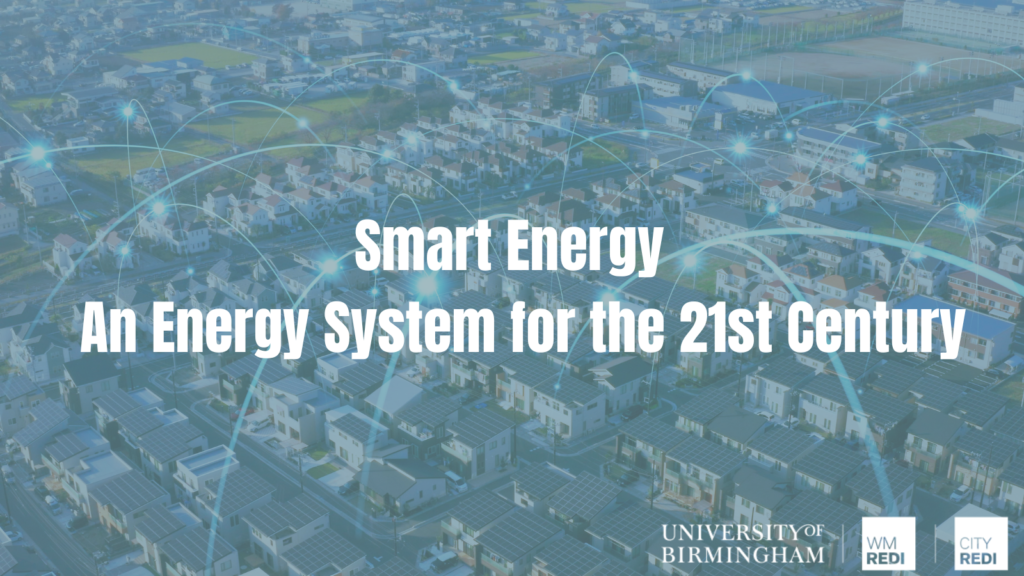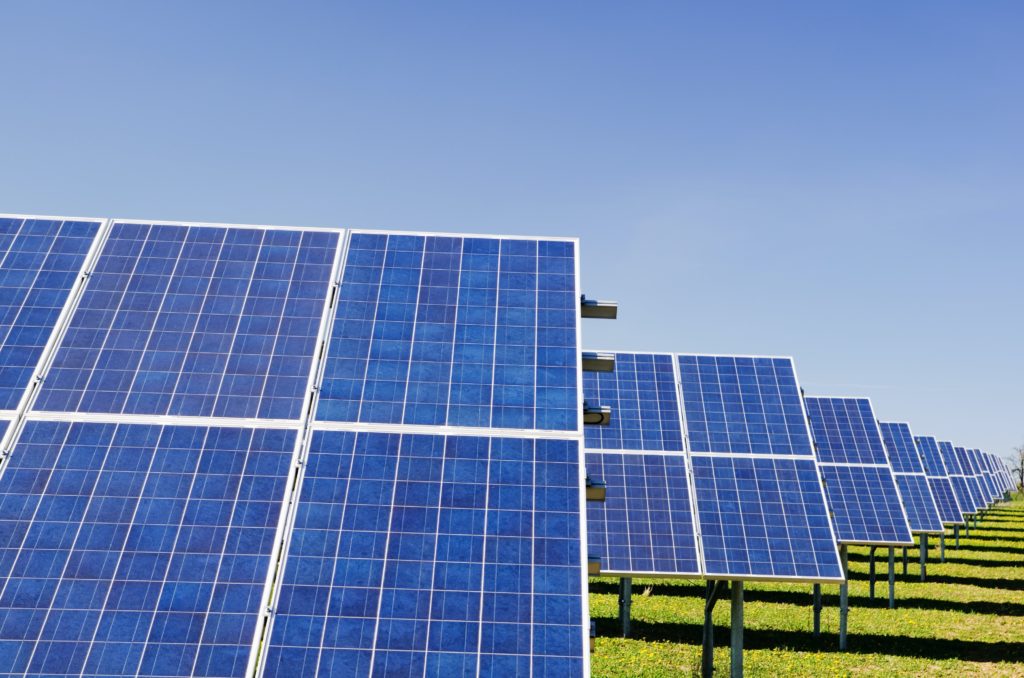
What is smart energy? Annum Rafique discusses what it is, how it works and its potential to help us achieve net-zero. This blog was first published on the College of Social Science blog.
Smart Energy has been identified as an energy system for the 21st Century which utilises digital technologies to monitor energy needs, make decisions and promotes net zero.
This blog is based on the report commissioned by the Midlands Engine: Smart Energy – An Energy System for the 21st Century and is part of a series.
Introduction
In recent years, a lot of focus has been placed on energy and its transition towards net zero to reduce emissions from energy. High-carbon fuels such as oil and coal are becoming limited in their use. At the same time, energy generation has moved towards more renewable and low-carbon sources such as solar, wind, biomass and nuclear. In parallel to that, there is an ongoing revolution in computing, digitalisation and artificial intelligence (AI), also driving the energy transition. AI and machine learning can process huge amounts of data and provide favourable solutions.

What is a Smart Energy System?
The transition of the energy system in the next two decades provides a valuable opportunity to invest in energy systems fit for the 21st Century. Smart Energy has been identified as an energy system for the 21st Century.
A Smart Energy System is an approach which utilises new and emerging digital technologies, artificial intelligence, and machine learning to actively monitor and balance energy needs across connected energy networks, of all scales, by making real-time autonomous interventions empowering energy users and companies and ensuring costs are reduced, energy networks are resilient, and the energy system transitions to net zero.
Smart Energy Systems provide ways of managing the additional complexity in a multi-grid system at a lower cost than focusing on a particular sector or infrastructure in isolation, e.g. by limiting the costs of building additional network capacity (electricity, hydrogen or heat) to meet peak demand.
A Smart Energy System has the capability to manage greater levels of decentralised low-carbon generation. A Smart Energy System should also have considerations of cost versus benefit at its core, which can include different generations and forms of storage. In addition, it could help to build trust back into the energy system through the public disclosure and sharing of open data where feasible. Understanding such a system ensures that the energy system’s design, implementation and operation as a whole are in line with national carbon emission targets.
The potential of Smart Energy System
The energy system needs to become smarter to manage the complexities of transitioning towards net zero. Households are already evolving and becoming smarter. Smart meters are being installed nationwide for real-time monitoring of energy consumption. Homes can generate energy through solar PV and heat pumps and store energy through batteries. Combined with an energy management system, smart meters have the capability to monitor and optimise energy generation, consumption and storage.
Like homes, businesses are also becoming smarter with the ability to store, generate and monitor their energy usage through smart devices.
Whether deployed across individual buildings, campuses, city regions or entire countries, Smart Energy Systems can help users realise their energy ambitions using advanced digital driving processes. They offer the following potential benefits:
- They can enable the transition to low-carbon (and more localised) energy sources by exchanging data on energy production and storage and using data to minimise carbon emissions.
- The data can be used to optimise operational expenditure (OPEX) associated with producing, storing, using and selling energy associated with different assets.
- They can support optimal charging and electrification of vehicle fleets.
- They can encourage greater levels of energy efficiency.
- Increased resilience by integrating multiple sources of energy production can increase the network’s overall resilience.
- Increased transparency of network health and performance.
- The deployment of smart grids that can integrate new technologies and solutions such as Vehicle-toGrid (V2G).
- More sustainable living across society through more engagement with our energy use.
- Improving the system’s resilience to the impacts of climate change, such as extreme weather, can have a major effect on the functioning of the incumbent energy system.
Beyond this, Smart Energy Systems can integrate with other smart digital ecosystems to provide wider benefits, such as the monitoring of air pollution, more energy-efficient and reliable transportation systems or more efficient and greener supply chains.
This blog is based on the report commissioned by the Midlands Engine: Smart Energy – An Energy System for the 21st Century.
This piece will be followed by a series of other blogs discussing Smart Energy in the Midlands, its challenges and barriers to deployment, and its benefits and costs.
This blog was written by Annum Rafique, Research Fellow City-REDI / WMREDI, University of Birmingham.
Disclaimer:
The views expressed in this analysis post are those of the authors and not necessarily those of City-REDI / WMREDI or the University of Birmingham.
